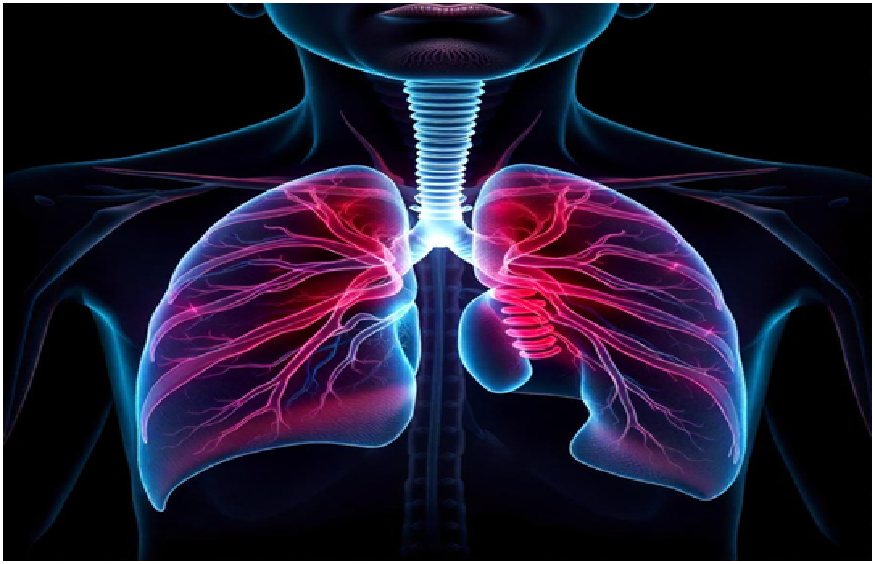We’ve all experienced the discomfort of a lingering cough, stuffy nose, or sore throat. But what if these symptoms keep returning, and you’re unsure if it’s just a cold or something more? If you’ve been wondering whether you’re dealing with bronchitis symptoms or a cold that keeps coming back, you’re not alone. Understanding the cold vs bronchitis differences is essential for proper treatment and recovery.
Persistent bronchitis symptoms can mess up our lives in more ways than one. Visit a super-speciality hospital in Lucknow today to get the best medical attention and care in the region.
Cold vs Bronchitis: What’s the Difference?
At first glance, a cold and bronchitis can seem very similar. Both conditions cause coughing, congestion, and general discomfort. However, there are important distinctions between them that can help you understand what’s happening in your body.
A cold is caused by a viral infection that typically affects the upper respiratory system, particularly the nose and throat. It tends to last for about a week and is usually self-limiting, meaning it resolves on its own without the need for medical treatment.
On the other hand, bronchitis affects the bronchial tubes, which are the airways that carry air to your lungs. It can be caused by both viruses and bacteria, though viral infections are more common. When these tubes become inflamed, it leads to persistent coughing and other uncomfortable symptoms. Bronchitis symptoms tend to last longer than those of a cold, and in some cases, bronchitis can become chronic
Bronchitis Symptoms vs. Cold Symptoms
Now that we’ve outlined the basics, let’s dive into the key differences between bronchitis symptoms and cold symptoms, so you can better identify which one you might be dealing with.
Cold Symptoms:
Runny or stuffy nose: Typically, the most prominent symptom of a cold, lasting for several days.
Sore throat: This discomfort usually appears early on and may ease as the cold progresses.
Mild cough: A cough can develop during a cold, but it’s usually not severe.
Sneezing and congestion: These symptoms are common with a cold, making it difficult to breathe through the nose.
Fatigue and body aches: Mild tiredness or aches can occur, but these are generally manageable.
Low-grade fever: In some cases, a mild fever may accompany a cold, but it is typically not high.
Bronchitis Symptoms:
Persistent cough: The hallmark symptom of bronchitis is a deep, lasting cough that may produce mucus (phlegm), which can be clear, white, yellow, or green.
Shortness of breath: Due to the inflammation in the bronchial tubes, breathing can become difficult, especially after physical exertion.
Wheezing: A high-pitched whistling sound when breathing may be heard, which is indicative of bronchial tube constriction.
Chest discomfort: Many individuals with bronchitis feel tightness or pain in the chest, especially when coughing.
Fatigue: Bronchitis can cause exhaustion, as persistent coughing can make it hard to get enough rest.
Mild fever and chills: Unlike a cold, bronchitis may involve a low-grade fever with occasional chills.
One of the major points of comparison in the cold vs bronchitis debate is the longevity of symptoms. While a cold typically lasts about a week, bronchitis symptoms can persist for weeks or even months, especially if not treated properly.
When a Cold Becomes Bronchitis
It’s not uncommon for a simple cold to evolve into bronchitis. If you’ve had a cold and your cough starts to worsen or persists longer than 10 days, it could be a sign that the viral infection has moved from your upper respiratory tract to your bronchial tubes, causing bronchitis. This transition can be difficult to recognize because the early symptoms of both conditions are so similar.
In cases where you’ve experienced a cold that keeps coming back, it’s important to pay attention to the nature and duration of your symptoms. Repeated or prolonged respiratory infections might point to a weakened immune system, underlying allergies, or exposure to environmental irritants, such as smoke or pollution, which can trigger bronchitis.
Acute vs. Chronic Bronchitis
It’s essential to understand that bronchitis comes in two forms: acute and chronic. Identifying which type you have can help determine the best course of action for managing the condition.
Acute bronchitis is short-term and often develops after a cold or respiratory infection. It can last anywhere from a few days to several weeks but usually resolves with proper care.
Chronic bronchitis, on the other hand, is a long-term condition that involves recurring episodes of bronchial inflammation. It is often caused by smoking or exposure to harmful irritants. Chronic bronchitis is considered part of Chronic Obstructive Pulmonary Disease (COPD) and requires ongoing medical management.
Treating and Managing Bronchitis Symptoms
If you suspect that you have bronchitis, particularly if your cough is persistent or you are experiencing shortness of breath, it’s important to seek medical advice. While acute bronchitis often resolves on its own, chronic bronchitis requires more intensive treatment
Home Remedies for Bronchitis and Colds:
Rest and hydration: As with any respiratory illness, getting plenty of rest and drinking fluids will help your body recover faster.
Humidifiers and steam: Moist air can ease breathing and help to clear mucus from your airways. Taking steamy showers or using a humidifier can provide relief.
Over-the-counter medications: Pain relievers, decongestants, and cough suppressants may help alleviate symptoms, though they won’t cure bronchitis itself.
Avoid irritants: Smoking, pollution, and allergens can exacerbate bronchitis symptoms, so avoiding them is key to recovery.
In cases of chronic bronchitis, your doctor may recommend medications such as bronchodilators or corticosteroids to help open your airways and reduce inflammation.
When to Seek Medical Attention
If you’re dealing with symptoms that persist for more than a few weeks, or if you have recurring episodes of illness, it’s time to see a healthcare provider. Additionally, if you experience severe shortness of breath, a high fever, or a cough that produces blood, these could be signs of a more serious condition that requires immediate medical attention.
Final Thoughts: Cold vs Bronchitis
Deciding whether your symptoms are related to bronchitis or just a common cold can be tricky, especially if you’ve had a cold that keeps coming back. Paying close attention to the nature of your cough, the presence of mucus, and how long your symptoms persist will help you differentiate between the two conditions. If in doubt, consult with a healthcare provider to get the appropriate diagnosis and treatment.
Visit a super-speciality hospital in Lucknow to explore the distinction between bronchitis symptoms and cold symptoms, thereby ensuring that you’ll be better equipped to manage your health and recover quickly.




